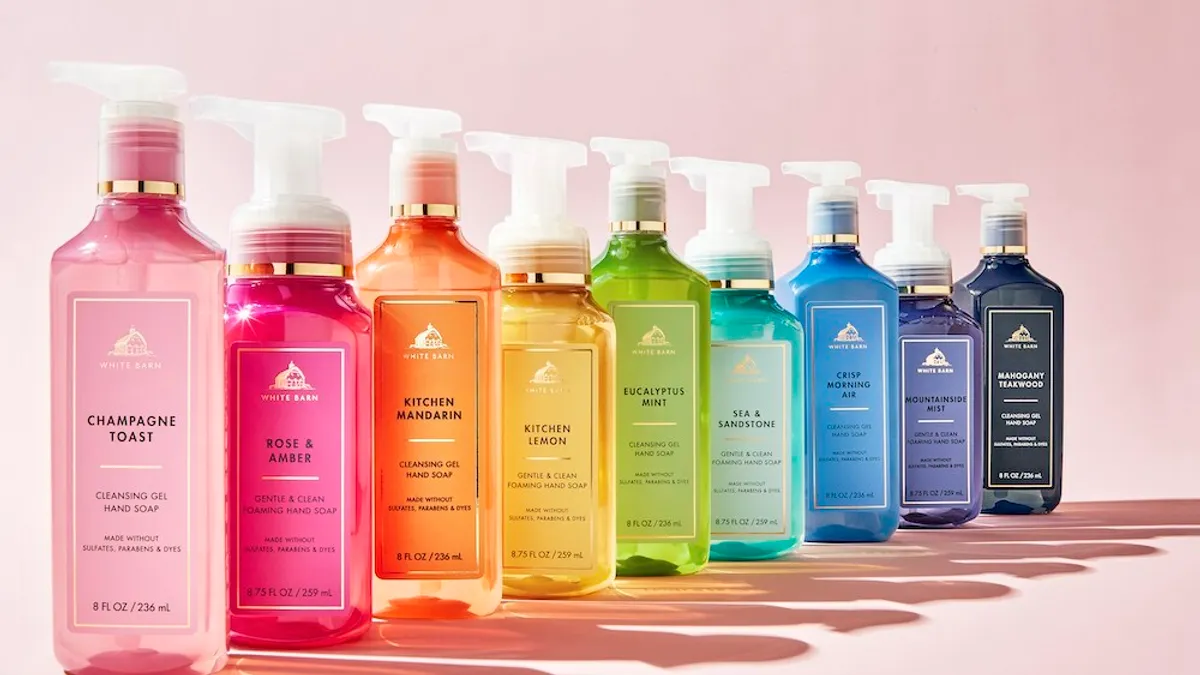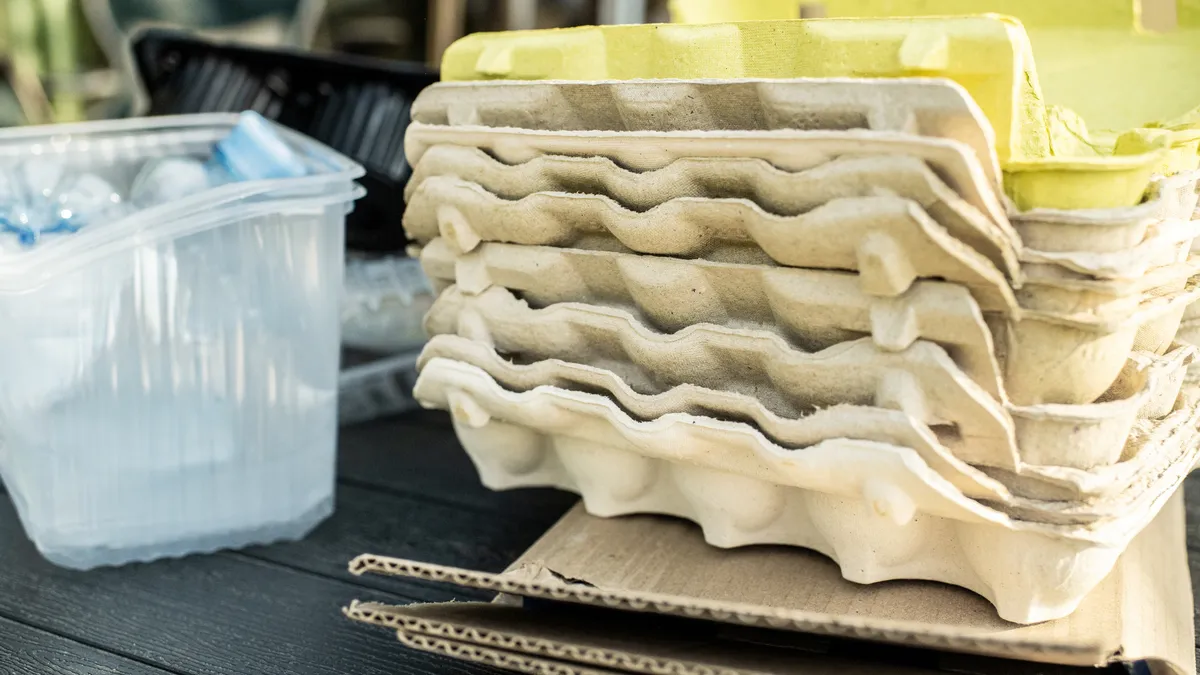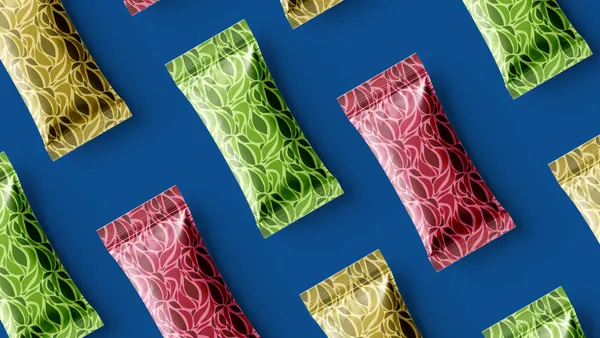Companies constantly innovate with technology and redesign their packaging. Here’s a look at four recent examples of launches or sustainable packaging solutions on Packaging Dive’s radar.
Bath & Body Works refreshes hand soaps with recycled plastic
Mall stalwart Bath & Body Works has given its line of hand soaps a sustainability makeover. In addition to reformulating the soaps without parabens, sulfates and dyes, it’s now packaging them in bottles made with at least 50% recycled plastic. And, for the first time, the American retailer is introducing hand soap refills in recyclable cartons that hold up to 3.6 refills per container.
Meaty changes
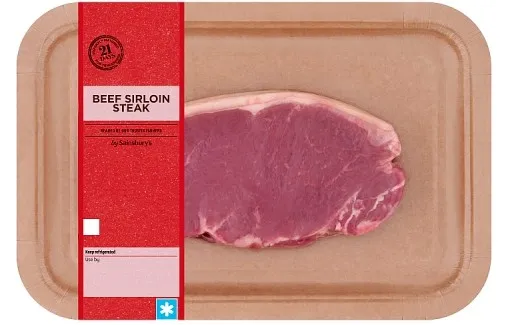
U.K. supermarket chain Sainsbury’s is replacing the plastic trays it used in packaging its steaks with cardboard alternatives. The grocer reports that the change results in 70% less plastic use and that the cardboard trays can be rinsed and placed in a curbside recycling bin. Sainsbury’s has a goal of cutting its own brands’ use of plastic packaging in half by 2025. It’s part of a string of plastic reduction efforts by grocery chains, including with meat products.
The change applies to its “by Sainsbury’s” steak range, but the company previously rolled out cardboard trays for certain other of its own steak lines. The grocer went trayless on whole chickens this spring. Earlier this year, Sainsbury’s also made changes to its minced beef packaging, switching from a plastic tray to a vacuum-packed alternative, which lowered plastic used in packaging by at least 55%. The move drew outcry from some consumers, who complained the packaging format turned the meat “to mush,” but the grocer has defended the change. Last month Lidl also introduced recyclable vacuum-packed packaging for its ground beef products in the U.K.
A lighter foil-peel food can
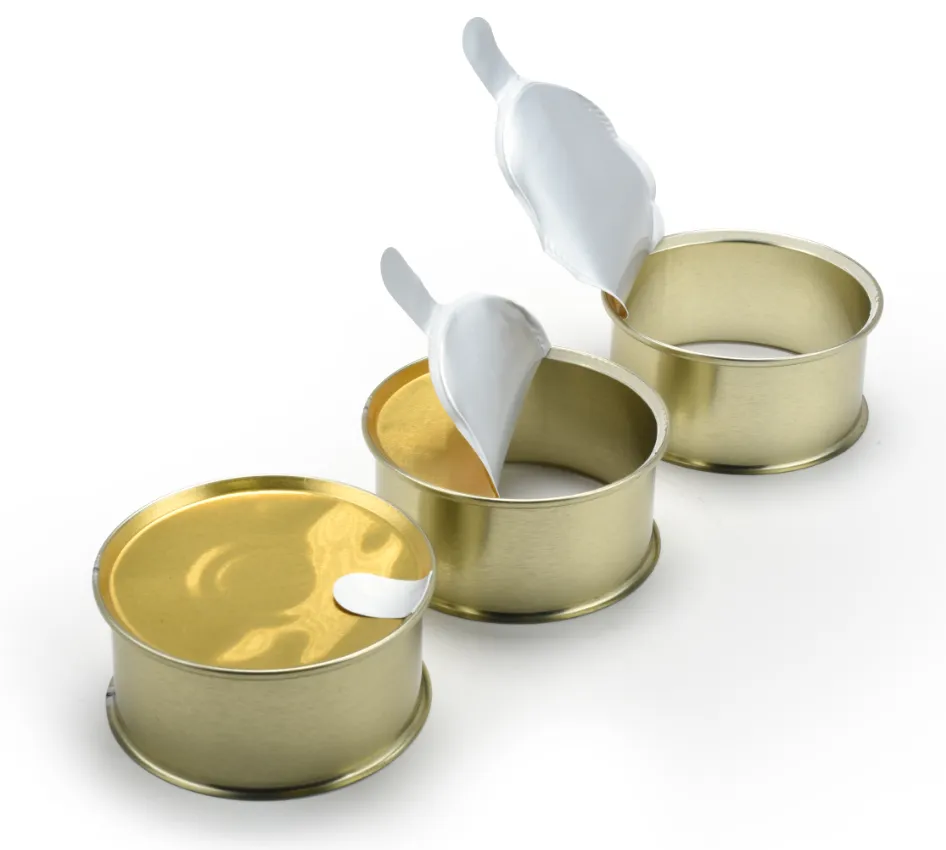
Swiss metal packaging maker Eviosys last week announced its Ecopeel product: a food can with a peelable foil directly sealed to the body. Eviosys says the lighter design can cut the carbon footprint of canned food items by up to 20%; those savings come from replacing the traditional ring-pull with foil.
For consumers, the company says the smooth, 100% aperture design could reduce the potential for food waste. Customers can print onto the can, Eviosys said. Opportunities for expansion in Europe could be in pet food or food products like pâté or olives, the company said in its announcement.
A lower-carbon process for aluminum screwtops
Amcor Capsules and European aluminum supplier Aludium said last week they have collaborated on aluminum for use in screwtops that has a lower-than-average carbon footprint when measured from raw material extraction to delivery. The savings come from a combination of lower-carbon primary aluminum and the use of recycled content. The companies say this is a 50% reduction in carbon footprint compared with the average for primary aluminum sold in Europe.
Beyond products being recyclable, “we want to go further and reduce the levels of CO2 emitted during manufacturing,” said Bertrand Daru, sustainability director of Amcor Capsules, in a statement. “Our aluminium screw caps now offer a more sustainable alternative for wine and spirits brands and distributors.”



